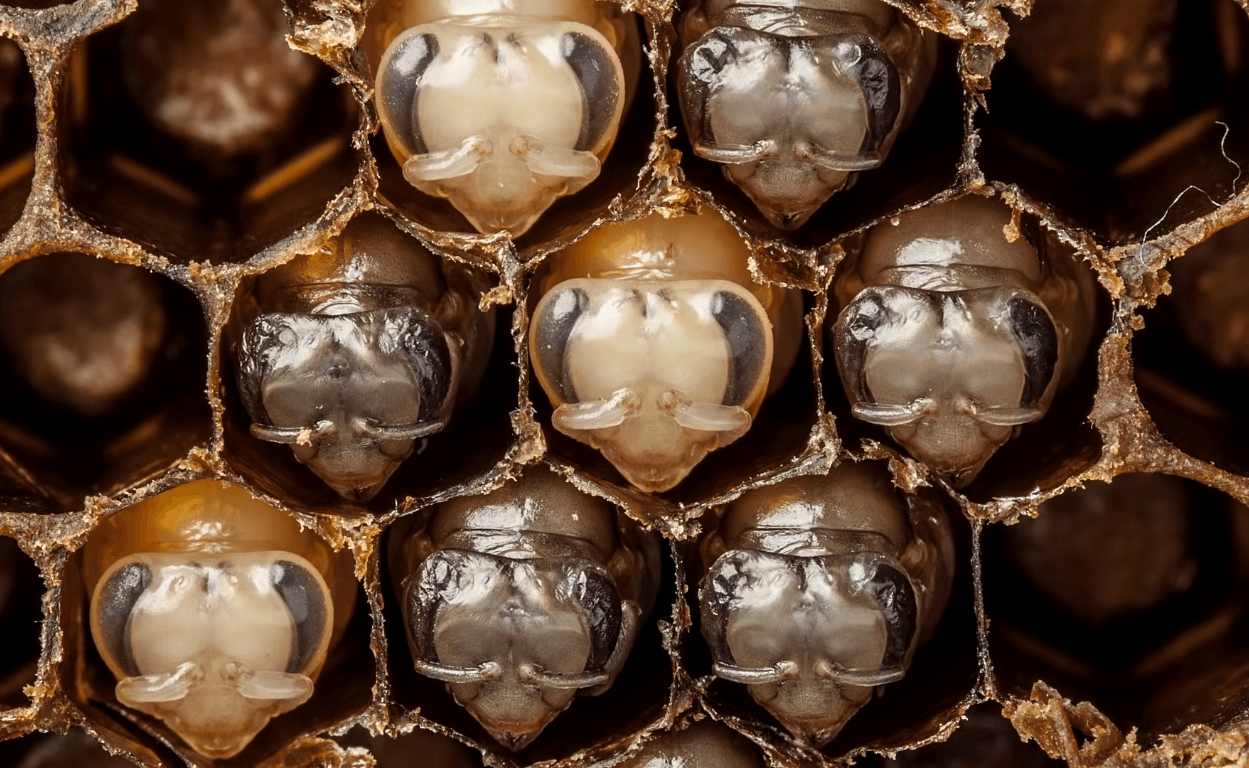

Witness the impressive growth of larvae into bees in this mesmerizing time-lapse video from photographer Anand Varma. He grew an interest for these pollinators when Natural Geographic asked him to do a photoshoot for a story. From that moment further, he started beekeeping in his backyard. Varma did this six-month project, for which he built a beehive in his workshop. He says that this gave him a new respect for the scrupulous job of beekeeping.
The trigger which awakened Anand was the Varroa Mites problem, which has a high weigh in all of the problems that are making the bees deplete. Because of that, Anand set his goal to solve this problem and help reduce the disappearance of these pollinators.
Anand says: “We took this wild creature and put it inside of a box, practically domesticating it, and originally that was so that we could harvest their honey. But eventually, we started losing our wild pollinators and there are many places now where those wild pollinators can no longer meet the pollination demands of our agriculture. So these managed bees
have become an integral part of our food system. So when people talk about saving bees, my interpretation of that is we need to save our relationship with bees.”He adds: “And in order to design new solutions, we have to understand the basic biology of bees. And understand the effects of stressors that we sometimes can not see. In other words, we have to understand bees up close.”
Urban beekeeping is more than just a hobby; it's a significant contribution to…
The queen bee is the most important member of a honeybee colony. She is responsible…
Beekeeping in February can vary greatly depending on the location. In some areas, beekeepers are…
Festooning bees are an intriguing phenomenon observed in social bees, including honeybees and bumblebees.…
The question "How close together can beehives be placed?" is one of the most common…
Many beekeepers are scared from this time of the year - the period of March…
This website uses cookies.
View Comments
CAN YOU FEED RAW SUGAR OVER WINTER FOR THE BEES TO LIVE ON??